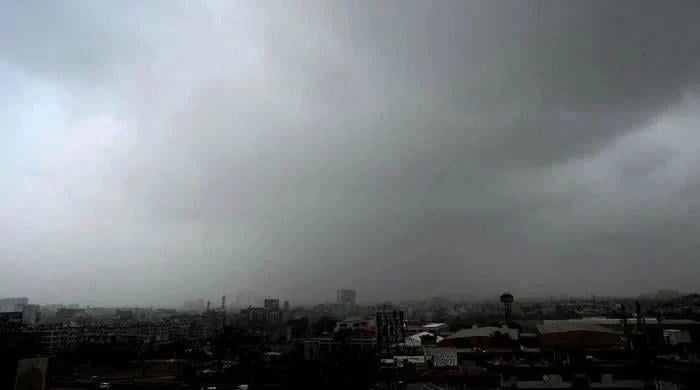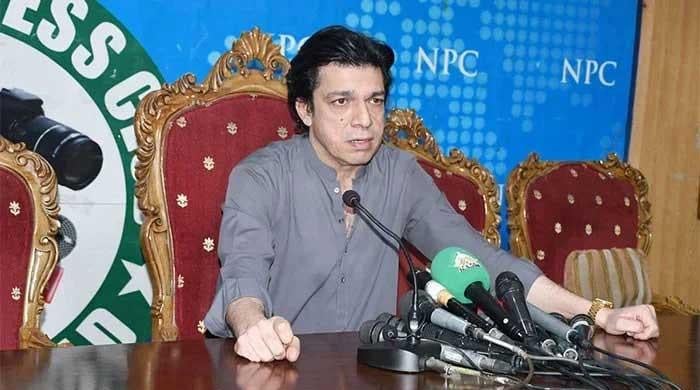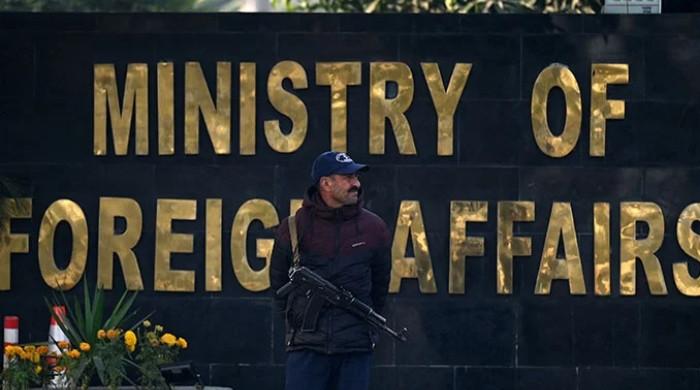'Reducing the dangers of journalism'
When I got my first death threat almost two decades ago, I did not take it too seriously. It was an exciting time to be a journalist. Since then, I have lost several jobs, mainly due to my writings...
October 16, 2012
For me, journalism is not a profession but a passion. The year 2009 was a turning point in my career when my passion greatly depressed my family members as well as friends. I was declared a traitor by the all- powerful intelligence agencies, primarily because I was constantly raising the issue of the missing persons through my columns and talk shows. While religious fanatics threatened to kill me because of my opposition to their high-handed tactics, the then US ambassador to Pakistan also wrote a letter against me to the management of my television channel. The American envoy was actually upset over some blunt questions I had posed to the visiting US Secretary of State Ms. Hilary Clinton [in a television interview] about the growing activities of the wicked Black Water in Pakistan.
I was literally in the middle of crossfire at that time. I had never imagined that I will be warned by none other than my closest friends not to speak the truth, otherwise I will be eliminated. Some top government officials compelled me to restrict my movements and stop going to the office. In the last year, I have received numerous phone calls from some senior government officials, informing me that I am facing serious threats to my life and that I should be very careful while speaking on television and writing for newspapers. There was a time when I used to believe that I can be provided protection against life threats by the law enforcement agencies. But I have lately realized that nothing can be done to protect media persons when state agencies themselves decide to bully them in the name of national interest.
Dozens of daring journalists have been kidnapped and killed in my country by the state and non state actors in the name of “national interest”. But I am lucky to be still alive, may be because I live in Islamabad, the capital, and not in Baluchistan or Khyber Pakhtunkhwa provinces or in Karachi which are considered to be dangerous places for journalists. More than 80 Pakistani journalists have lost their lives in the line of duty in last ten years, including some close friends of mine. Media persons discharging their professional duties in a conflict zone have the power to influence the lives of millions. But this equally puts at risk their own lives, especially in countries like Pakistan where the most extreme form of censorship is to kill a journalist to silence his voice.
As things stand, a large majority of journalists in Pakistan are feeling unsafe, with dozens having already been forced to quit their profession or leave their home towns, in a bid to save their lives. Journalists are under threat not only from fanatic terrorists and criminals but also from the state-run intelligence agencies.
But the safety of journalists is a matter of grave concern for all mainstream journalist bodies across the globe. In the past decade, over 1000 media persons have been killed worldwide. Unfortunately, most of them were the victims of targeted killing.
Therefore, it is time for the United Nations to force its member States to take all possible measures for bringing their domestic media related laws in line with the international standards. The United States Security Council (UNSC) had adopted resolution No. 1738 in 2006 to establish a coherent, action oriented approach to the safety of journalists in conflict zones. But it is unfortunate to note that hardly any action has been taken by the UN against a member State for violating its resolution No. 1738.
A special prosecutor was appointed in Mexico few years back to control the crimes against media but it needs to improve its performance. A journalist protection bill was introduced in Iraqi parliament last year but this law failed to offer any meaningful protection to journalists. National Union of Journalists in India is also demanding special laws for the protection of journalists.
As far as the Pakistan government is concerned, it has recently promised to introduce a Journalists’ Protection Bill in the parliament. But it seems to be a lengthy process.
The following are a few of the many steps which can be taken by the government, officials bodies, as well as media organisations and journalists themselves, to ensure the safety of media persons.
Governments:
- Member States of UN should legislate to guarantee media freedom, including freedom of expression and freedom of opinion. The drafting and application of such laws should take due account of the fundamental right to freedom of opinion and expression. Journalists should have the right to protect their sources.
- Governments should placing of official advertisements in all the media houses to their provision of high quality safety measures for their workers.
- Media organisations should be made to ensure that the journalists who are working in conflict areas have full life insurance which covers illness, repatriation, disability and loss of life.
Media organisations:
- All media organisations should arrange regular training courses and workshops for their staff working in conflict areas.
- Assignments in conflict areas should only be given to committed professionals who have been given a choice in accepting the role.
- Media persons working in dangerous environment should have reliable safety equipment (bullet proof jackets, helmets) including satellite phones, communication equipment (locator beacons) and first aid kits.
- Media organisations should either depute a safety advisor or appoint a high risk team whose job should be to stay in touch with all those journalists working in conflict zones and to provide them necessary support whenever required.
- Every media organization should have a code of conduct for discouraging unethical practices in the name of journalism. It will provide credibility, that will help increase respect, which is the biggest shield against state and non-state threats.
Journalists and other media workers:
- During big demonstrations and riots, journalists should prominently display identity cards.
- Immediately after an IED explosion, reporters and cameramen should stay away from the blast site because a second blast usually follows the first one to ensure maximum loss of life.
- Journalists must cover conflicts objectively with a balanced approach. One sided reporting can always invite trouble in conflict zones. Media persons should try to avoid embedded journalism: sometimes security forces and militants try to dictate their own point of view which can prove dangerous for newsmen.
- Journalists should not move around in conflict areas without local guides and translators. (I was kidnapped twice in Afghanistan and Pakistan by the Taliban but was able to return home safely mainly because my translator convinced them that I was not a spy.)
- Media workers should always carry relevant travel and identity documents while reporting in another country. I have never entered Afghanistan without having a valid passport and visa like many other foreign journalists who were taken hostage by the Afghan Taliban because they did not bother to get visas.
- Journalists should always stay in touch with their editor or chief reporter during a risky assignment: they should be aware of their movements and circumstances
- In case of a threat from an individual or institution, media workers should immediately inform their editor in writing, naming those behind the threat. They should also email or record a video statement, and give it to a trusted organization or friend.
- Anyone who feels that somebody can target them on the way to the office should change their timing and route as a precautionary measure. Also, it is advisable to remove the name plate outside your house.
- Anyone who feels their organisation or the authorities cannot protect them should approach local journalist bodies or international organisations like the Committee to Protect Journalists (CPJ) or Reporters Sans Frontiers (RSF). They can publicise a case internationally to dissuade those who are trying to harm you.
It goes without saying that risk is the beauty of journalism. However, no story is worth your life. I made a blunder in Lebanon in 2006 when I tried to film the Israeli bombing of the Hezbollah headquarters by entering a no-go area. I was arrested by the Hezbollah forces and imprisoned in a jail that was hit by the Israeli missiles.
In my opinion, the true quality of democracy in a country can be gauged by the security and protection of its media persons. Threats, intimidation and violence directed against journalists signify an attack on democracy itself. When newsgathers can act as the eyes and ears of society without facing fear, they become agents of democracy and freedom. But when they are made to perform their duties in an atmosphere of fear, it severely affects the free flow of information on which democracies are founded.
Media persons across the globe need to feel free and safe so that they can efficiently perform their roles as the agents of democracy and freedom.
(Hamid Mir is the Executive Editor of TV channel Geo News)









